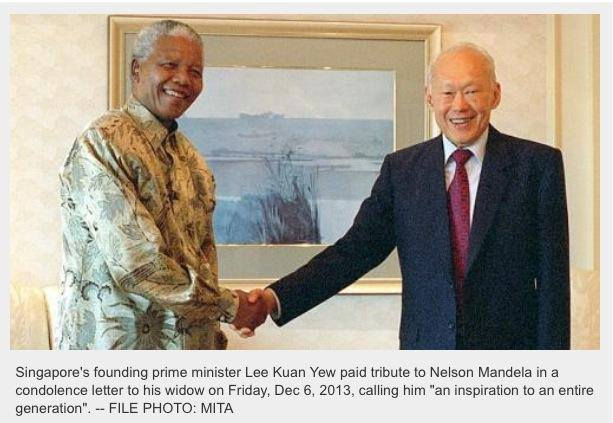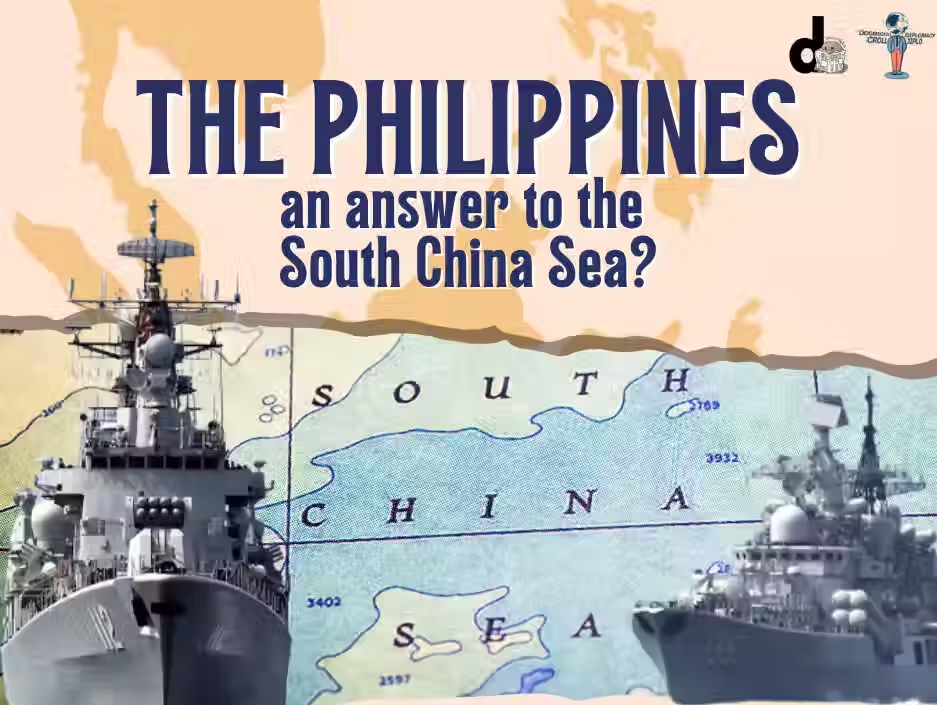Mandela's Legacy - A Light for Singapore
- Discuss Diglett

- Jul 19, 2025
- 8 min read
Updated: Jul 24, 2025
This article is co-authored by Luo Xuhong and Stacey Ngiam in commemoration of the Nelson Mandela International Day. *This article is published in collaboration with Discuss Diglett, a blog run by youths keen on sharing their love for law, politics and economics. For more, check out Discuss Diglett's website and Instagram @DiscussDiglett today!

For that one dream, he fought, and gave his whole life, including 27 years in prison.
This man is one of the greatest statesmen of the 20th century, Nelson Mandela.
His phenomenal status arises from his huge successes in healing the nation's wounds and securing a mostly bloodshed-free end to the apartheid (an institutionalised system of subjugation launched in 1948 that restricted most rights and privileges to the white minority). Even after an extended stay of 27 years in prison, Mandela was able to reconcile the discordance between the major racial groups and lead a mostly peaceful transition into a democracy for the nation of 40 million.
Realising early on in prison that race relations, particularly between the colonial white Afrikaans and the black indigenous population, was deeply volatile, Mandela dedicated his life to dismantling the system of apartheid, with a sharp focus in fostering racial reconciliation rather than hatred. Aspiring for the leadership of all South Africans regardless of race, he also mastered the art of forgiveness as part of his interpersonal leadership style - rejecting the inflammatory rhetoric that many rivals often used to galvanise Black support, knowing that such divisive language would only worsen national unity. Remarkably, Mandela also studied the Afrikaner language and history in jail, picking up valuable insights that would serve him well in his subsequent negotiations with the White party leaders over the formation of his new government in 1994.
"If you talk to a man in a language he understands, that goes to his head. If you talk to him in his language, that goes to his heart.”
In the same vein, Mandela often discussed rugby, a source of Afrikaner pride, with his Afrikaner captors in jail and even went on to publicly support the Afrikaner-majority Springbok team at the rugby world cup in 1995.
Another of Mandela's most important contributions to the post-apartheid era was his founding of the Truth and Reconciliation Commission. Unlike a tribunal, this restorative justice body focused on fact-finding and truth-seeking rather than punitive punishment, thus promoting healing and forgiveness for a nation still reeling from the horrors of apartheid. Indeed, witnesses were invited to share and document their experiences under the repressive apartheid system – yet, the commission was simultaneously empowered to grant amnesty to the perpetrators of crimes relating to human rights violations, with the overall aim of creating peace through forgiveness. Mandela's approach in emphasising reconciliation rather than pursuing a retribution is hence credited as an essential step that paved the way for the nation's smooth transition to a multiracial democracy.
While Mandela may be best known for his reconciliation at home, he also left an indelible mark on the international stage. At a time when might was very much right, Mandela demonstrated that soft power and goodwill could achieve diplomatic breakthroughs just as easily.
In the same spirit of reconciliation, Mandela showcased his signature style of soft power diplomacy through his involvement in negotiations and conflict mediation across various African conflicts: the Democratic Republic of Congo (then known as Zaire), Sudan and Burundi. Despite its limited success, Mandela’s attempts at brokering a deal between ailing autocrat Mobutu’s regime and Kabila’s rebels impressed many for what was seen as South Africa’s first attempt at peace negotiations beyond its own borders and was eventually credited with helping to end the civil war in 1997.
Even after stepping down from active politics in 1999, Mandela remained a familiar face in regional affairs, taking over from former Tanzanian president Julius Nyerere as main negotiator in the Burundian Civil War upon the latter’s demise. Drawing upon his own experience leading a coalition government, Mandela’s efforts were instrumental in breathing new life into stalled negotiations that culminated in the Arusha Agreements. Signed in August 2000 by the Burundian government and most major political parties, the accords sought to implement a power-sharing formula designed to maintain the delicate ethnic balance of Burundi, not unlike Mandela’s own leadership of a cabinet that bridged all major South African racial groups.
Beyond conflict management, Mandela was also a keen advocate of greater African unity as the answer to the continent’s economic woes. Through his signing of the Treaty Establishing the African Economic Community (also known as the Abuja Treaty) in 1997, Mandela sought to strengthen the regional integration of the South African economy and in turn promote economic development. Despite the treaty’s lofty (and unrealised) goals of a common African currency and EU-like common market, it did achieve tangible outcomes such as the creation of Regional Economic Communities that coordinated trade relations between bloc members.
A role model for Southeast Asia
Mandela’s contributions have changed the trajectory of South Africa.
Yet, his biggest contributions to today’s society are not in these tangible efforts. Rather, it is the beliefs and values governing his leadership which made him an inspiration and role model for generations of leaders. Indeed, one key lesson Mandela leaves behind for Southeast Asia is the concept of a rainbow nation.
The metaphor, coined by Archbishop Desmond Tutu to describe South Africa following its first democratic elections in 1994, draws similarities between the colourful nature of a rainbow and how the elections marked the coming together of people from different backgrounds to build a nation that celebrates diversity and promotes inclusivity.
While Southeast Asia and South Africa are geographically far apart, the “rainbow nation” is crucial to both regions given the similarities in the diverse nature of their regions, which can easily threaten peace and cooperation when mismanaged. Be it within each Southeast Asian country, or in the Association of Southeast Asian Nations (ASEAN), leaders of the region are faced with the challenging task of balancing the needs of diverse communities.
In fact, during a 1997 banquet in Jakarta, Indonesia held in Mandela’s honour, Mandela himself shared that the motto of Indonesia: Unity in Diversity, is a common phrase used in South Africa, going forth to show the similarities the regions share.
In his speech at the Jakarta banquet, Mandela reflected on South Africa’s journey post apartheid, and shared how diversity can become a source of strength, where different groups can come together to form a “harmonious unity like a rainbow after a heavy storm”.
“Our diversity is a source of strength. We are a nation of many colours and cultures, but forming a harmonious unity like a rainbow after a heavy storm.”
This lesson continues to guide ASEAN till date, as mentioned by Singapore’s Minister of Foreign Affairs, Dr Vivian Balakrishnan on behalf of ASEAN at the 2018 Nelson Mandela Peace Summit. In his speech, Dr Balakrishnan said that this very lesson of “Unity in Diversity” in 1997 which called upon the two regions to learn from each other in how diversity can be a strength for their communities continues to resonate more than two decades later.
Seeing how ASEAN continues to balance economic diversity as they forge ahead with deepened economic integration and strengthened supply chains to become the fourth-largest global economy by 2045 as announced in this year’s ASEAN Summit in May this year, it is evident how Mandela’s teachings have continued influence in how Southeast Asia develops even after his passing.
Nonetheless, nothing more can illustrate how respected Mandela is in the Southeast Asian region than how Singapore’s founding father, Mr Lee Kuan Yew, an exceptional leader himself, had publicly shared his great respect for Mandela’s leadership and character.
In response to Mandela’s passing in 2013, Lee sent his condolences to Mandela’s wife, describing Mandela as an “inspiration to an entire generation”.





Comments